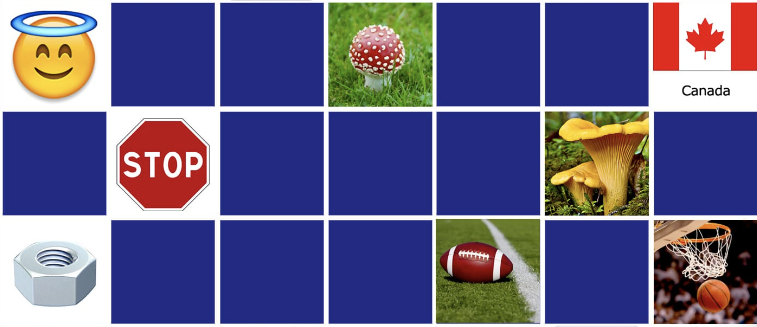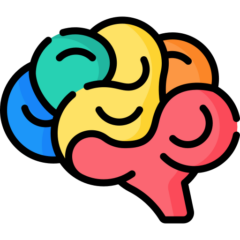Not only can you perform better at work by being more productive, but having better short- and long-term memory may also help you be more organized and make better decisions.
Your performance and general well-being at work can both be enhanced by improved memory. Stress reduction is another benefit of improved memory. It takes time and consistent brain workouts to increase memory.

This post will cover memory games, how to utilize them to sharpen your memory and other suggestions for enhancing brain function.
What are Memory Games?
Memory games are mentally demanding and aid in the growth and expansion of the grey matter, the area of our brains that affects memory. According to research, brain training for just 15 minutes a day can enhance cognitive performance.
Playing memory games is a fun way to challenge yourself and sharpen your recall mentally. The brain needs regular exercise to be strong and healthy like our bodies.
What are the Benefits of Improving Your Memory
Your job may be significantly affected by your memory capacity. Several advantages include:
- Improved performance as a result of improved knowledge retention and learning
- Increased productivity results from your ability to remember knowledge while utilizing it, thanks to working solid memory
- Less anxiety since you’ll recall facts better when you need it
- Enhanced organization and memory of where things are
- improved judgment
Games to Improve your Memory
The best games for memory enhancement are listed here.
1. Crossword Puzzles
One of the most well-known brain-training activities is the crossword puzzle. These games can assess your language abilities and use your knowledge of science, history, and popular culture. Crosswords can be completed online, through gaming applications, or the more conventional method of printed books or newspapers.
Crossword puzzles are frequently employed as a cognitive workout to prevent dementia, particularly when they become a regular habit. Choose problems that will keep your brain active and challenged. Limit yourself to only one complex puzzle daily to avoid taxing your brain.
2. Chess
Chess was created to be a mentally demanding and intellectually tricky game. One must rely on short-term memory to thoroughly assess the board and formulate a plan for each move.
Additionally, you’ll need to foresee your opponent’s movements and ensure that each one contributes to achieving your ultimate objective. This activity triggers your long-term memory, so you use both parts of your brain in a changing pattern.
3. Jigsaw Puzzles
Jigsaw puzzles are good brain teasers because they simultaneously use the left and right parts of the brain. Additionally, they strengthen the connections between brain cells, enhancing short-term memory and mental agility.
Jigsaw puzzles also help to develop visual-spatial reasoning since you have to consider each piece individually and determine how it fits into the overall image.
4. Rebus Puzzles
Rebus puzzles are effective for boosting mental acuity and memory. In this problem, a question is posed, and then You may discover the solution’s hints in the form of numbers, characters, images, and symbols. To answer the problems, players must be aware of and be able to recall clichés and idioms.
5. Sudoku
Sudoku can increase memory recall and engage various brain regions. You must maintain various numbers in your brain and mentally place them in one of the nine grid spots to accomplish this game.
To memorize the numbers for this game, you must have a strong working memory. Then, you must apply reasoning to fill in the following blank.
Sudoku can improve focus and problem-solving abilities since it forces players to employ strategic thought and creative thinking to solve puzzles. Players can act decisively and without hesitation.
6. Concentration
Children may practice their memory and retention abilities by playing the well-known game Concentration. You put any amount of cards faces down in this game, then flip one card at a time while attempting to match sets.
Choose the “spaghetti” form of the game, where the cards are arranged more messily, to make the game more challenging and more mentally taxing. It will be harder to recall where the cards are because of the disorganized arrangement, making it harder on your brain.
7. Games that Require Multi-tasking
Think about selecting games that demand to multitask. This can assist you in sharpening your memory recall and aid in information recall when an issue arises.
You will alter your neuronal markers; as a result, helping to hone better your brain’s ability to deal with interruptions and distractions while recovering information. Computer games are fantastic for increasing brain capacity by enhancing multitasking abilities.
Tips for improving your memory
Here are a few additional suggestions to aid memory enhancement for enhanced productivity at work.
- Consider practicing meditation: Studies have shown that it enhances the grey matter in the brain, which affects memory and cognition. It has been demonstrated that relaxation methods like meditation can help people of all ages with their short-term memory.
- Get adequate sleep: Sleep is crucial for memory consolidation, converting short-term memories into long-term memories. According to experts, adults should get seven to nine hours of sleep per night.
- Exercise: Studies have indicated that exercise may enhance the growth and development of neurons, resulting in enhanced brain health
- Focus on one item at a time when executing any work. Your brain will also have time to fully encode the information if you refrain from multitasking and concentrate on one item at a time.
